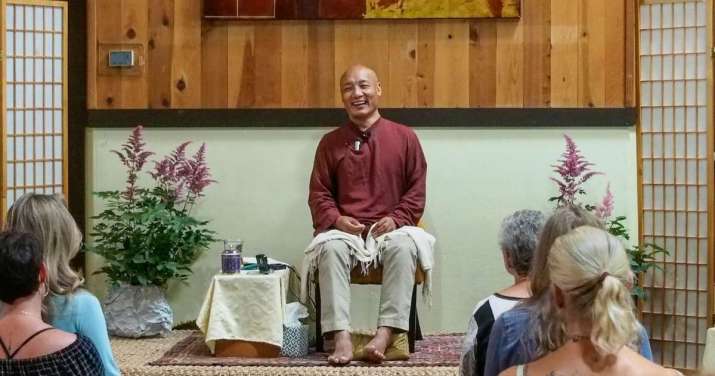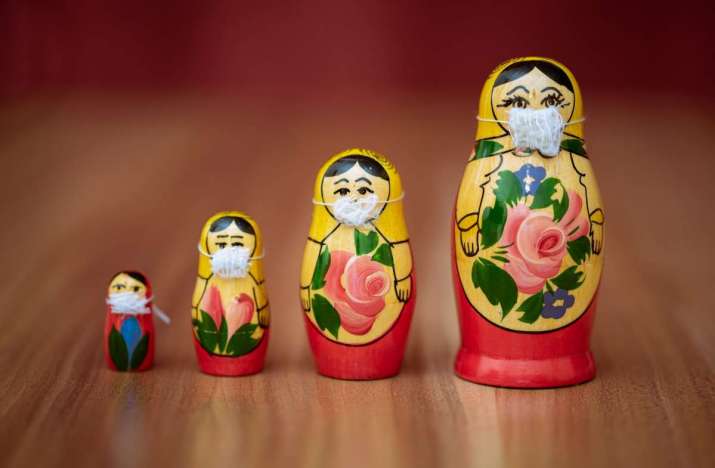FEATURES|COLUMNS|Dharma Gossip
The Wisdom of Uncertainty
 Anam Thubten Rinpoche
Anam Thubten RinpocheNormally, people have a sense of certainty regarding their way of life, their daily business, and economic movements. Many institutions have been created to maintain such a sense. One of the main functions of government is to deliver this feeling of certainty to its citizens. Here and there throughout history, there have been long periods of stability for the world or for many nations. This sense of certainty allows us to feel that there is solid ground beneath us, upon which we can keep what we have and pursue further dreams. This can be both a psychological and an actual condition. Our homes, jobs, and savings help us to feel that we’re in control of our lives and are safe. The same feeling can be found in friendships, in one’s relationship with a community, and through faith, especially in theistic religions.
Yet every form of comfort rests on a very rickety foundation. This reality is inconvenient, however, so it is usually quietly relegated to a dark corner of our consciousness; then the illusion of certainty can transport us into a kind of trance or reverie in which life is predictable, filled with all our plans, such as next month’s vacation, a well-planned vision for retirement, and many more expectations. If this inconvenient truth is disclosed to our conscious mind, anxiety and fear can mess up our sense of well-being because so many people have not been trained to embrace the undeniable fact that uncertainty is the way things are, and they are unable to make peace with that fact.
Nature or the universe is often friendly. It supports our existence and gives us what is required to survive and thrive. Yet there are many moments when it wreaks havoc on everyone, thwarting social order and creating widespread chaos that affects the lives of millions. Sometimes this is the result of direct actions by human beings who disregard nature’s balance in order to maintain their comfortable living habits. Many times, the world has been rocked by natural disasters. We are in middle of such a situation right now.
The novel coronavirus has become an unstoppable pandemic that has claimed the lives of tens of thousands. It has brought disruption to the world’s economic structures and to our daily routines. Many of us are living in fear, not knowing what life is going to look like. Surely the world will continue no matter what happens? This is not the first time that the world has witnessed a pandemic. Meanwhile, insurmountable problems are causing a great deal of distress. Psychological panic arises in us when we are forced out of our comfort zones and perceive that there is a great unknown—like some kind of invisible monster—hovering over us that is not going to go away any time soon.
 Photo by Evgeni Tcherkasski
Photo by Evgeni TcherkasskiThis collective anxiety comes from not contemplating the very nature of life, which is always changing, sometimes for the better and at other times for the worse. Buddhism has the perfect wisdom for preparing ourselves to face difficult circumstances such as this. It is called anitya (Skt. impermanence). The Buddha stated that all things are inherently transient and he encouraged us to reflect on this—whether life is stable or totally off-kilter. With such insight we can find equilibrium, realizing that uncertainty is part of life. Then life won’t rock us when things go wrong. Not only that, such insight will allow us to experience the inner freedom that comes from being liberated from the chain of grasping onto the illusion of certainty.
Is this pandemic going to bring out the best or the worst in humanity? It all depends on us. This means we have to make a choice together, as a human family. Our egos are ready to take us in the direction of mistrust, blame, division, and self-protection. Or we can choose to take this as a time to transcend racial and national boundaries, to help each other, and to come to realize that there is only one human family, of which we are all a part.
Right now, those who have lost loved ones are going through much grief. Let’s be their friends and send them prayers as a gesture of goodwill. A huge percentage of the population in every country is disenfranchised or having a hard time making ends meet. These are the ones who are going to suffer the most. Since the world has so much wealth that is somehow concentrated among a tiny class of elite, wouldn’t it be nice if there was more generosity?
See more
Related features from Buddhistdoor Global
Love in the Time of Coronavirus, Part One: Refuge
Buddhistdoor View: The Great Adaptation – Our World Will Never Be the Same
Let there Be Loss
More from Dharma Gossip by Anam Thubten Rinpoche
See all coronavirus-related content from Buddhistdoor Global














